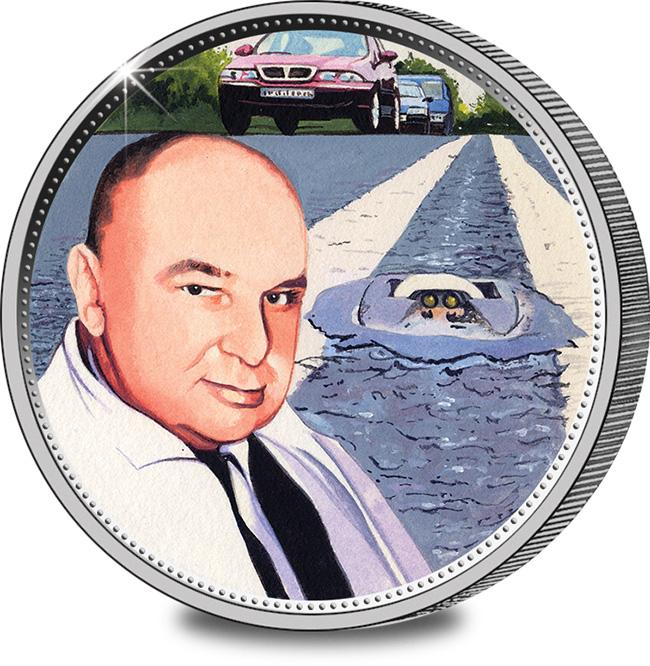
 |
Full name: Percy Shaw
Born: 15th April 1890
Invention/Achievement: 'Cats Eyes' reflective road
studs
Date of
introduction/Achievement: Patented 1934
Died: 1st September 1976
|
It's such a simple idea - the "Cat's Eye", a reflective road
stud that mirrors back car headlights and keeps us on the straight
and narrow, but In fact, the Cat's Eye is quite a sophisticated and
efficient piece of road safety equipment.
At its heart is the "Cat's Eye" a robust reflective lens
invented in 1928 for use in advertising signs. Two of these
are set in a rubber dome, itself mounted in a cast-iron housing.
After rain, water collects in the cast iron base and when a
passing vehicle presses the rubber mount down over a fixed rubber
wiper, the water helps cleans the lenses, maintaining their
reflectivity. It's a device that has probably saved hundreds
of lives and was the brainchild of one man, Percy Shaw.
Percy was born in Halifax, Yorkshire, in 1890 into a large
family. Leaving school at 13, he tried many jobs, eventually
joining his father in a small business, repairing tools during
World War I. After his father died in 1929, Shaw set up on
his own business repairing roads on contract.
He told various versions of how he got the idea for the Cat's
Eye reflectors, one says he saw his car headlights reflected in an
actual cat's eyes. Another that he was inspired by shiny tram
rails, or that reflective studs in a road sign lit up his light
bulb.
Whatever the source, in 1934 he took out a patent for the idea
and on 15th March 1935 founded Reflecting Roadstuds Ltd
to manufacture the product. At first take-up of the product
was slow. However, the blackout of street lighting during
World War II made night driving hazardous.
Approval from the Ministry of Transport led to widespread
adoption of the Cat's Eyes and soon the Halifax factory was
producing a million units a year. In 1965 Shaw was awarded
the OBE for services to exports.
Shaw never married and remained living in his childhood home in
Boothtown, Halifax, his only extravagances a Rolls Royce and four
television sets constantly switched on with the sound turned down.
He died aged 86 on 1st September 1976.